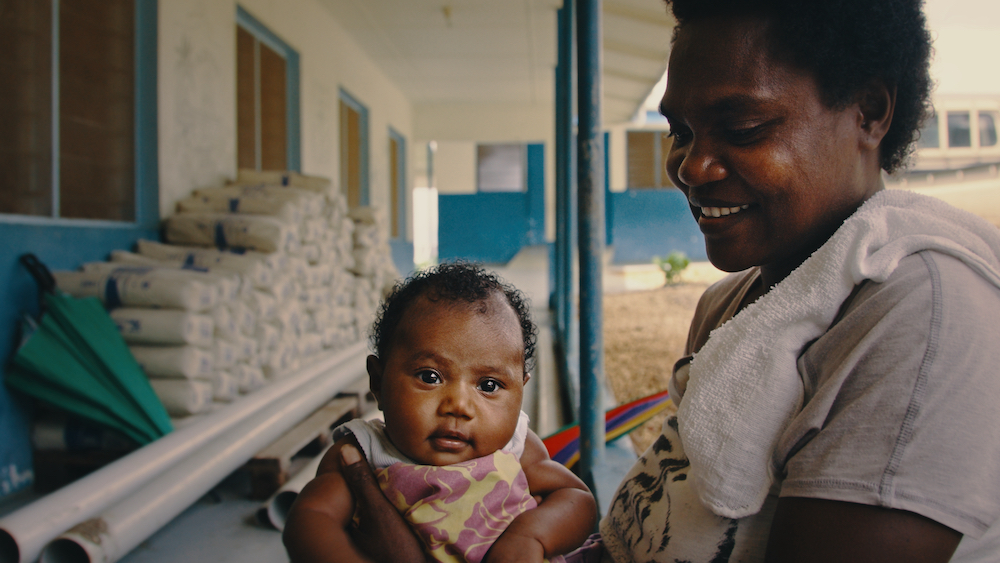ImpactAlpha, Feb. 18 – Solutions to infectious diseases are attracting capital from catalytic and commercial investors. All it took was a global pandemic.
Adjuvant Capital, founded by two veteran global health investors, seeks to put that capital to use to finance the development of affordable drugs, vaccines, diagnostics, and medical devices for diseases such as malaria, shigella, hookworm, HIV and tuberculosis.
Partners Glenn Rockman, an alumni of the Global Health Investment Fund, and Jenny Yip, ex- of the Gates Foundation’s $2.5 billion strategic investments group, are out to prove that late-stage life science technologies, made widely accessible and affordable, can deliver top-tier returns.
That thesis, made clearer by COVID-19, attracted philanthropic and private investors keen to demonstrate the market for solutions to long-neglected diseases burdening underserved populations in low- and middle-income countries.
“The traditional venture capital community has overlooked infectious disease in favor of more non-communicable diseases,” says Yip. “We want to be part of the next generation and the paradigm shifts of critical innovations.”
The Gates Foundation, which also backed the Global Health Investment Fund, anchored the fundraising with a $75 million ‘program-related investment.’ The fund attracted other foundations including Ford and MacArthur, pharmaceutical giants Merck and Novartis, development financiers CDC Group and International Finance Corporation and asset managers such as Anthos Fund & Asset Management and RockCreek.
“There is an important role for investment capital to play in stimulating innovation and making markets work for the poor,” said Mark Suzman, head of the Gates Foundation. The array of investors, he says, “have come together to help ensure the most promising health technologies and services are available to people most in need.”
Already, Adjuvant has backed more than a dozen companies developing solutions for rabies, yellow fever, group B streptococcus, non-hormonal contraception, chikungunya, herpes, respiratory syncytial virus, HIV and COVID-19. In addition to the U.S., the fund has backed companies in Nigeria, Bangladesh and China.
While attracting more attention, global health investment is still relatively new. Adjuvant’s blended fund structure provided a catalyst for commercial investors. After all investors reach a target initial hurdle, the fund accelerates returns for one class of limited partners (up to a certain amount). Returns for mission-driven investors then “catch-up.” If the fund is successful, all investors will earn the same return over time.
COVID-19 has revealed long-standing challenges in our structures, systems and societies, including our global health infrastructure, says John Balbach of MacArthur Foundation, which invested $5 million as part of its Capital Capital Consortium portfolio. “This was a massive gap and challenge before COVID-19, it is during COVID-19 and it will be after COVID-19,” Balbach told ImpactAlpha.
Accessible solutions
The firm’s latest investment is in Excision BioTherapeutics, a San Francisco biotech company developing CRISPR-based therapies to cure HIV and other viral infectious diseases. Such gene therapies are prohibitively expensive for most of the world. Adjuvant will begin immediately to work with the company to dramatically reduce the cost of producing the curative therapy.
“We want to make sure an exciting technology like Excision will actually be able to make it into the hands of patients living in South Africa,” says Yip.
For Adjuvant, access and affordability aren’t just aspirational. The fund is adopting the Gates Foundation’s ‘global access agreements’ to legally bind its investees to make their products affordable to people most in need.
“We’re trying to generate top-tier financial returns with no compromises on our healthcare or global health impact,” says Yip, who says the access commitments stand even in the event of an acquisition. As part of the commitment, the fund will work with companies to lower production costs, improve quality or improve access, which can mean investments in local manufacturing to localize distribution.
“We see it as accelerating growth,” says Yip. “It’s just a great way to conduct business investments.”
Other Adjuvant investments include 54Gene, a Nigerian startup building Africa’s first biobank to serve as a genetic database for medical companies developing new therapeutics. Beijing-based Yisheng Biopharma is addressing chronic supply issues in the rabies vaccine market. Vienna, Austria-based Themis Bioscience, which was using its broad-based platform to develop a COVID vaccine, was sold to Merck in June.
Capital gap
Rockman earlier helped launch and manage the Global Health Investment Fund, a $108 million fund backed by Gates and JP Morgan with a similar thesis. After a rocky start, including early fundraising woes, the fund backed a dozen companies.
At Gates Foundation, Yip helped grow the foundation’s pool of program-related investments and led transactions in global health, agriculture, nutrition, and education.
Yip says part of the impetus for starting Adjuvant was to fill a capital gap in later stage life science technologies. Gates, National Institutes of Health and others were de-risking a lot of early stage science with grants and investments, she says. Traditional venture capital was failing to take de-risked programs and assets further into commercialization.
Says Yip, “we thought that it was not only a great global health opportunity, but a great investment opportunity.”
Disclosure: ImpactAlpha worked with the Gates Foundation to produce a 2016 special report, Making Markets Work for the Poor, that profiled a number of the foundation’s program-related investments.











